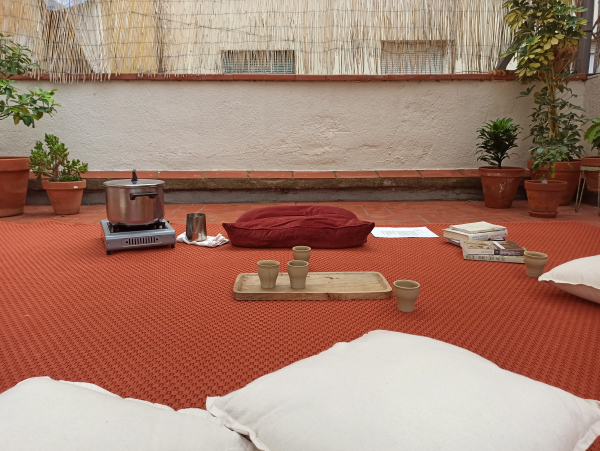La complejidad del sabor y aroma del masala chai resuena profundamente con la intrincada narrativa de El Ministerio de la Felicidad Suprema de Arundhati Roy. Primero, nos zambullimos en las determinaciones del personaje de Roy, Aftab/Anyum: ¿qué hay en el nombre? Esta reflexión sobre la nominación nos conduce al vasto cuerpo de la novela, marcado por la pluralidad religiosa, la violencia política y las identidades de género que se verán reflejadas en la paleta sensorial del chai. Este tejido será central en este coloquio cuyo objetivo es observar cómo una bebida y una obra literaria pueden hacer surgir preguntas sobre nuestra forma de vida.
Programa
1. ¿Qué hay en un nombre?
2. El cuerpo atravesado: pluralidad religiosa, violencia política e identidad de género
3. La desarticulación de la promesa de felicidad
___
La sesión incluye un servicio de masala chai.
The complexity of the flavor and aroma of chai masala deeply resonates with the intricate narrative of Arundhati Roy’s “The Ministry of Utmost Happiness”. First, we delve into the determinations of Roy’s character, Aftab/Anjum: what’s in a name? This reflection on naming leads us to the expansive body of the novel, marked by religious plurality, political violence, and gender identities that will be mirrored in the sensory palette of chai. This tapestry will be central in this colloquium, the aim of which is to observe how a beverage and a literary work can prompt questions about our way of living.
Syllabus
1. What’s in a name?
2. The intersected body: religious plurality, political violence, and gender identity
3. Resilience and the disarticulation of the promise of happiness.
___
The session includes a service of chai masala. Please note that the sessions are currently held in Spanish, if you are interested in a session in English, contact me at info@liturate.com.




